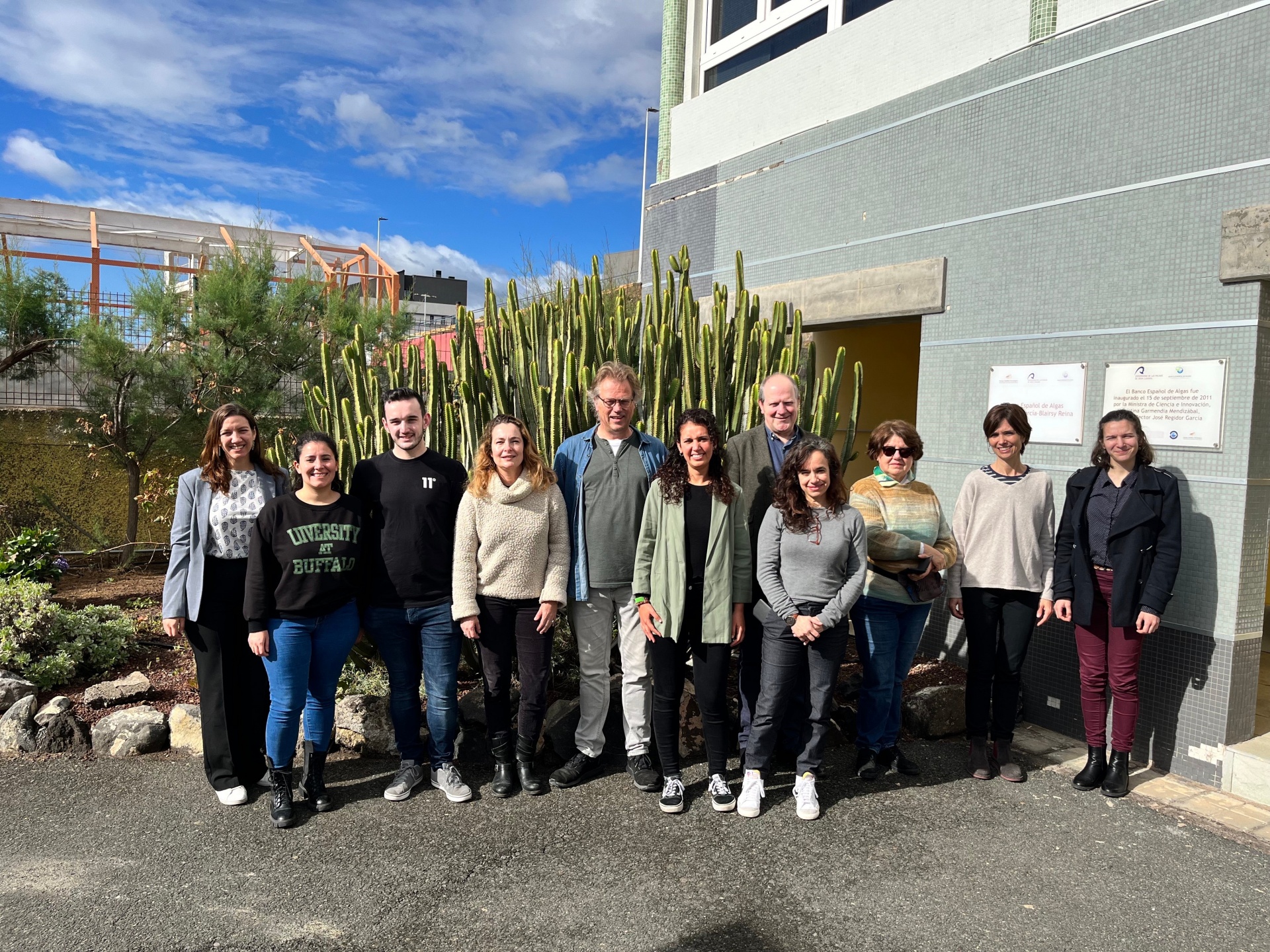The Aquaculture Research Group (GIA) of the Institute for Research in Sustainable Aquaculture and Marine Ecosystems (ECOAQUA) organised last Wednesday, February 16th, within the framework of the INTEGRATE project, a workshop on nutrient flow in Integrated Multi-trophic Aquaculture Systems (IMTA).
The event, which took place at the University of Las Palmas de Gran Canaria (ULPGC) facilities located in the port of Taliarte, and also online, was attended by experts from different institutions, including the Andalusian Aquaculture Technology Center (CTAQUA), which leads this project, and others such as the University of Bangor (Wales), GreenCoLAB, the University of the Algarve and the Portuguese Institute of the Sea and Atmosphere (Portugal).
The aim of the workshop was to present the methodology for monitoring the flow of nutrients and carbon in Integrated Multitrophic Aquaculture Systems (IMTA), as well as, the current existing models and their application for end users. The program, which tried to highlight the value of the tools available to calculate the environmental impact of a product, was aimed at agents of the aquaculture sector, academic researchers, technicians from technology centers, business associations, students interested in IMTA and sustainable aquaculture, as well as other agents involved in the blue economy.
During its development, the concept of IMTA, the diversification of cultivated species, good practices and guidelines for indicators to be taken into account to verify the sustainability of the system were studied in more detail.
The GIA group of the ECOAQUA Institute, involved as a partner of the INTEGRATE project, had an important role in this workshop, presenting the pilot experiments they are conducting in the field of IMTA systems development, integrating sea cucumbers in the production of invertebrates and macroalgae and studying their benefits. Among the researchers participating in this meeting were María Del Loreto García López and Gercende Courtois de Viçose from the Aquaculture Research Group (GIA) of the University institute ECOAQUA.
As defined in the INTEGRATE project, Integrated Multi-Trophic Aquaculture (IMTA) is an aquaculture production system that combines organisms from two or more functional groups linked trophically by proven nutrient fluxes. In this system, the biomass obtained is totally or partially removed through harvest to facilitate the ecological balance. The aquaculture production in IMTA systems offers a sustainable approach to production that allows the efficient use of resources, such as, the reuse of nutrients that can be used as fertilisers for the production of algae biomass, which in turn can be used as feed, as well as the reduction of environmental impacts on water and sediment quality.
Photo taken by CTAQUA.
Press office: Beatriz Díaz – beatriz@mandarinacomunicacion.es – 620410871


